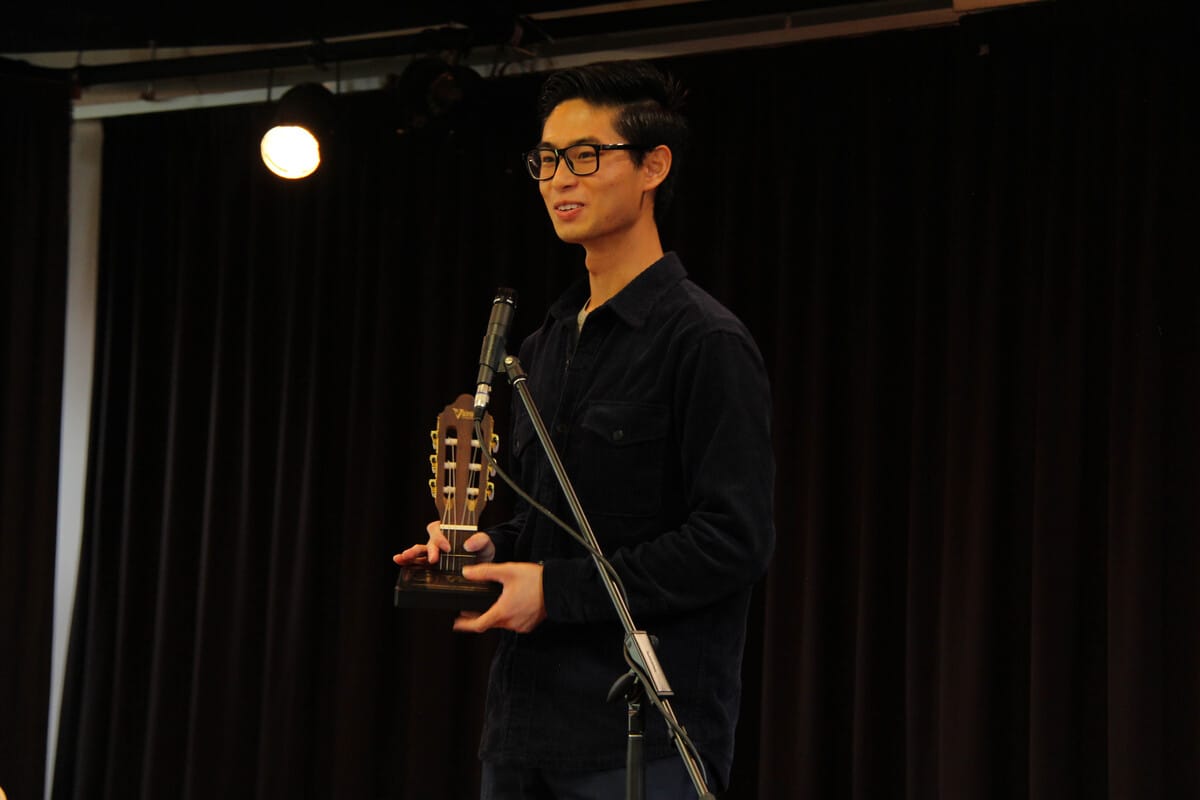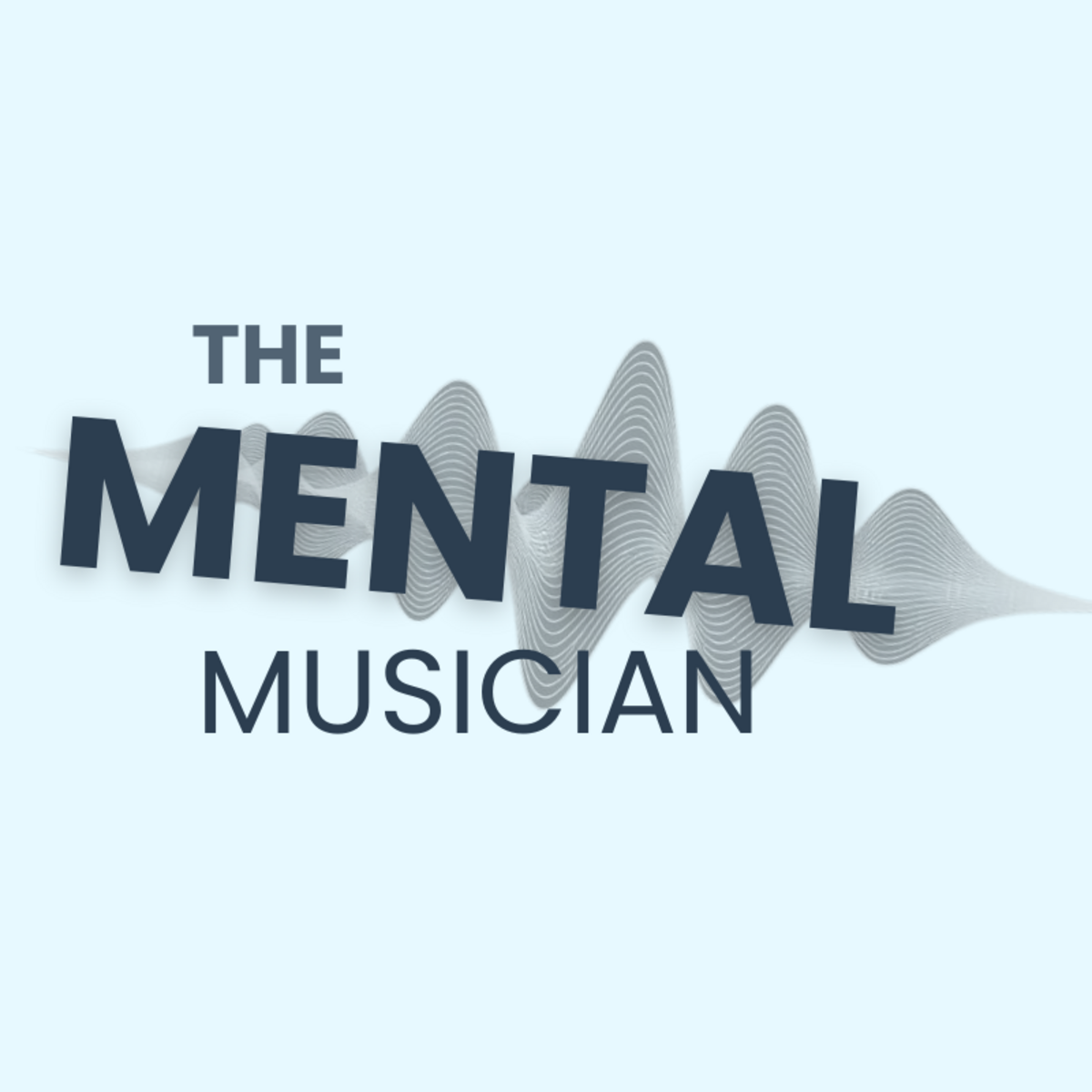I want to ask you something:
Do you believe the following statement is true?
"If you want to be remembered, you have to suffer for your art."
I’d love to know if you do or if you did at some point.
The reason I ask is that it’s something I believed for a very long time, and since this is a newsletter about mental health in music, I thought it was quite appropriate to share my experience with it with you.
I always found it strange how the tradition of the "tortured artist" persists.
There's a narrative that to be truly great, a musician must suffer, be broken, and live in turmoil.
Think about legends like Charlie Parker, who struggled with addiction — not because he glorified it, but because he was dealing with chronic pain. He openly admitted that drugs didn't improve his playing; they made it worse.
His addiction, born from a lack of healthcare, is a tragic example of how we've glamorised suffering in the arts.

I’m sorry if this image gives you nightmares. Don’t worry, it gave me a few for a week.
Now, this was a belief that almost every artist back in Parker’s time embraced without thinking too much about the dire outcomes.
But today, the consequences are still real. The statistics are grim — 65% of musicians in in the U.S. suffer from drug addiction and overdose, and many more struggle with mental health issues like depression, anxiety, and burnout.
It gets worse when you move across the pond to the UK, where the number climbs to 73%, whilst 80% of musicians in Australia (where I live) are suffering in silence.
Even though there are more unions, online communities and non-profit organisations doing their best to support artists around the world, it's enough to make anyone question whether it's worth it.
For me, if I had a dollar for every time I questioned whether or not I should continue on, I’d have enough to buy a house.
Or at least half a house because let’s face it…cost of living aye?

Trust me I think I might actually have to give an arm and leg just to buy some fruit, let alone fill up my car. EVs are hella expensive!!
Okay, look, I don’t have all the answers, and the thing is, my aim with this newsletter is to build a support network so we can talk about these things openly without being criticised or silenced.
If I had a black and white solution, I’d be right on it like my life depended on it.
But at this stage, I don’t.
All I can do is share my story and give you all the courage to share yours.
Because I believe, every now and then, the most powerful remedy is to know that you aren’t alone in a fight.
And boy is the fight on.
I didn’t always see things this way.
In fact, when I started my professional music career in 2015, I believed the only way for me to succeed was to put my body and mind through hell.
It was only in 2021 that I started to open my eyes and see reality of this belief.
Whilst studying jazz at the Sydney Conservatorium of Music, I saw so many talented musicians who were sleep-deprived, financially struggling, and emotionally drained.
It wasn’t just me who was trapped by this outdated trope.
It was a massive wake-up call for me.
I realised that my habits were fueling my depression and contributing to my deteriorating physical health.
I was just too blind to admit it because I wanted to be a true “artist”.
Over the last four years, I’ve made a serious effort to break the toxic cycle that told me I had to sacrifice my well-being to succeed.
I wanted to reframe the importance of health — not just as a luxury but as the foundation for everything else.
It has been a gruelling journey, and it hasn’t been without its hiccups.
But it’s been a necessary one.
I’d love to share more about that journey, but for now, I want to tell you about some of the habits I’ve developed that have been monumental for my health.
If you do want to read about it in more detail later on, I’ll leave a link to another newsletter where I lay it all out.
For now, there are four mental modes I want to share with you and encourage you to try.
Why 4? Well, I think 4 keeps things simple. There is obviously more than 4. But if I give you too many, it might overwhelm you, and that’s the last thing I want to do.
So for now, I’ll start off with sharing an approach with you, some tips on how to execute the approach, and then a small journal prompt to help keep yourself accountable.
I can’t promise you that it’ll immediately change your life.
But I can promise you that I want to do my best to give you tips on how to put your health first.
Because let’s face it; when a musician is told to “put their health first”, no one actually tells you how to.
So here we go:
1. How to actually put your health first.
I figured we should start with the obvious since I just mentioned it.
It sounds simple yeah? But how do you actually do it?
For me, it meant ensuring that I woke up feeling like I could handle the tasks ahead, and going to bed knowing I had done enough — without guilt.
Here's how I approached it:
Eating well:
I began eating regular, healthy meals — not as a diet, but as fuel for my mind and body.
Sleeping well: I prioritized 7 hours of sleep. If you need more, aim for 8. I've learned that when I'm well-rested, my motivation and energy to create flow more naturally.
Journal Prompt:
What habits are currently depleting your energy? How can you incorporate at least one of these health routines into your day?
2. Create your own schedule for your needs, not others
The amount of time you need to practice isn't about following recommendations; it's about understanding what you need to feel prepared.
This is what worked for me:
For some musicians, 4 hours might be necessary.
For others, less might be more. If it feels stressful, it's time to stop. I also learned to schedule rest.
In 2021, I started taking Friday and Saturday nights off.
That mental space, away from the guitar and screen, was crucial for me to recharge. It may sound counterproductive, but I found that this rest allowed me to return to my work with a clearer mind.
Journal Prompt:
How many hours of practice does your body and mind actually need to feel good, not exhausted?
When can you take a full night off from music to recharge, and how would that feel for you?
3. Find a Physical Activity That Relaxes Your Mind
Musicians often compare their craft to training for a sport.
Yet, few take their physical health as seriously as their practice. After my burnout in 2021, I started running. I didn't run to be competitive; I ran for my mental health.
Exercise, whether it's yoga, pilates, or running, gives your brain the opportunity to reset, providing space between your work and personal life. It doesn't have to be intense, but consistency is key.
Journal Prompt:
What physical activities do you enjoy that could serve as a mental reset?
How can you make this a regular part of your routine, even if it's just 30 minutes a few times a week?
4. Tracking Your Progress
Taking care of your health is a journey, not an overnight change. So here's how I recommend you track your progress over the next month:
Week 1: Focus on implementing one health habit — whether that's sleep, nutrition, or exercise. Track how you feel at the end of each day.
Week 2: Add another small habit. This could be scheduling a practice routine that feels relaxed and doesn't cause stress. Keep a note of how it impacts your energy and motivation.
Week 3: Reflect on your mental clarity. Are you noticing any changes in how you approach your music? How has your motivation been affected by your physical well-being?
Week 4: Evaluate the cumulative impact. What changes have you noticed in your health, energy, or approach to your career?
After a month, you'll have a clearer picture of how these changes are affecting your life.
Remember, this isn't about perfection — it's about steady improvement.

Yes I took a selfie and pretended to write specifically to make this point.
Some food for thought.
Perhaps the greatest musicians aren't those who suffered the most, but those who found a way to sustain their creativity long enough to share their complete artistic vision with the world.
How many masterpieces have we lost because brilliant minds burned out too soon?
Remember, your health isn't separate from your art—it's what makes your art possible.
And in taking care of yourself, you might just be creating your most revolutionary act yet:
Showing other musicians that there's a better way forward.
I'd love to hear which of these practices resonates most with you or what sustainable habits have made the biggest difference in your journey as a musician.
Let me know in the comments, or you can send me an email reply.
I may not reply straight away, but I will always read your emails and do my best to reply soon.

The fight is on! And so is the sweat…
P.S. I have put together a PDF with the journal prompts in this newsletter and 20 more to help you implement these habits. Consider it my gift to your future creative self, and a way to help you get back on track.
If you’d like me to send this free PDF to you, send me an email with the word “journal”.
Until next time, take care of yourself and don’t torture yourself.


